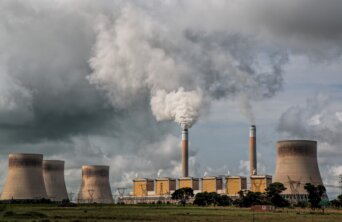- About
- Topics
- Story
- In-Depth
- Picks
- Opinion
- News
- Donate
- Signup for our newsletterOur Editors' Best Picks.Send
Read, Debate: Engage.
| topic: | Climate action |
|---|---|
| located: | Malaysia |
| editor: | Ashley Yeong |
Last month, Malaysia announced its bold plan to phase out its coal-fired power plants, aiming to cut their number by half by 2035 and fully retire them by 2044. This ambitious move is part of the government’s mission to achieve net zero emissions by 2050. While the plan sounds promising, its real-world execution could be a different story.
Last year at the United Nations’COP28, Malaysia’s Natural Resources, Environment and Climate Change Minister said Asia began using coal power later than the West, which made shutting down these plants early especially difficult. Coal’s later introduction in Asia has been crucial to the region’s rapid economic growth, making the transition away from it a complex and challenging process.
However, he said that the terms of over 7,000 MW in coal power purchase agreements will expire in nine years. As of 2021, coal makes up almost 45% of the country’s electricity generation mix, natural gas at 34.2%, and renewables lagged at just 2.4%. Transitioning away from it without disrupting economic stability, environmental goals, and reliable power supply will be delicate. A “just transition” is necessary to ensure communities reliant on coal jobs are not left behind.
Interestingly, Malaysia’s target to retire coal by 2044 is slightly ahead of the National Energy Transition Roadmap (NETR), which estimated an almost complete phase-out by 2045.
Renewables are set to play a more significant role in Malaysia’s energy mix, but the country still heavily depends on natural gas. Even though it’s cleaner than coal, natural gas is still a fossil fuel contributing to greenhouse gas emissions. This raises concerns about Malaysia’s sustainable energy strategy.
However, some experts are skeptical about whether Malaysia can stick to its zero carbon targets, much less its 2044 coal phase-out timeline.
“With its heavy reliance on fossil fuels, Malaysia faces a tough but essential road to decarbonisation,” Vinod Thomas, a visiting senior fellow at ISEAS–Yusof Ishak Institute, wrote on Fulcrum.
“Nonetheless, the country is well positioned to tap into emerging technological opportunities for low-carbon growth in industry and transport. Moving forward, Malaysia must boldly and swiftly spur green investments and pursue its carbon reduction goals.”
Shifting an energy sector so reliant on coal and natural gas to one led by renewables in just two decades is a very ambitious task. The government’s commitment is clear, but making it happen requires massive investment, new technology, and strong policy support.
Malaysia’s coal phase-out plan is a step towards cutting carbon emissions, but its success depends on overcoming various economic, technical, and social challenges. Achieving these ambitious targets will require more than just political will but also a united effort from all parts of society. A complete fossil fuel phase-out, however, remains an open question as the nation moves towards a sustainable energy future.
Image by Steve Buissinne.
